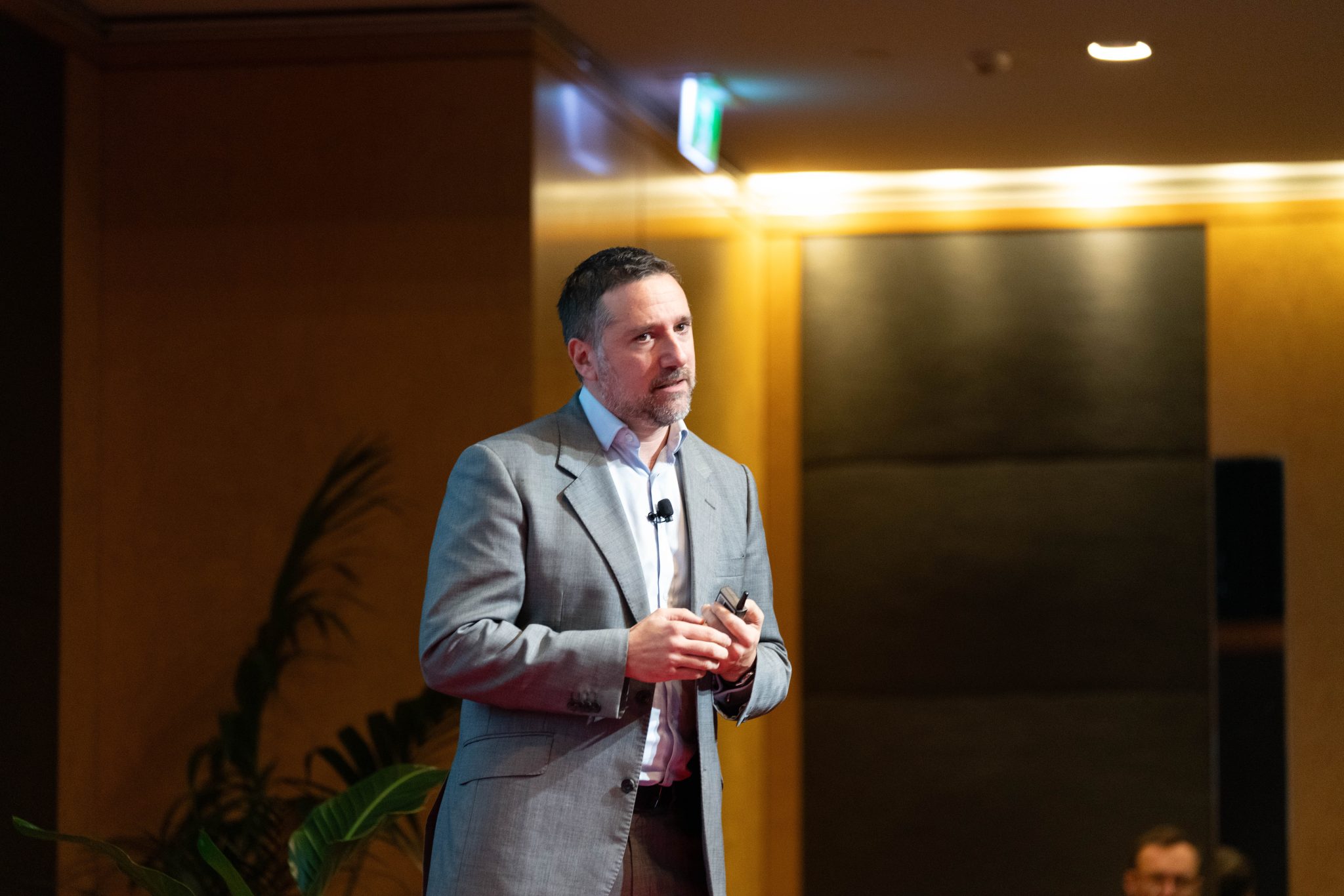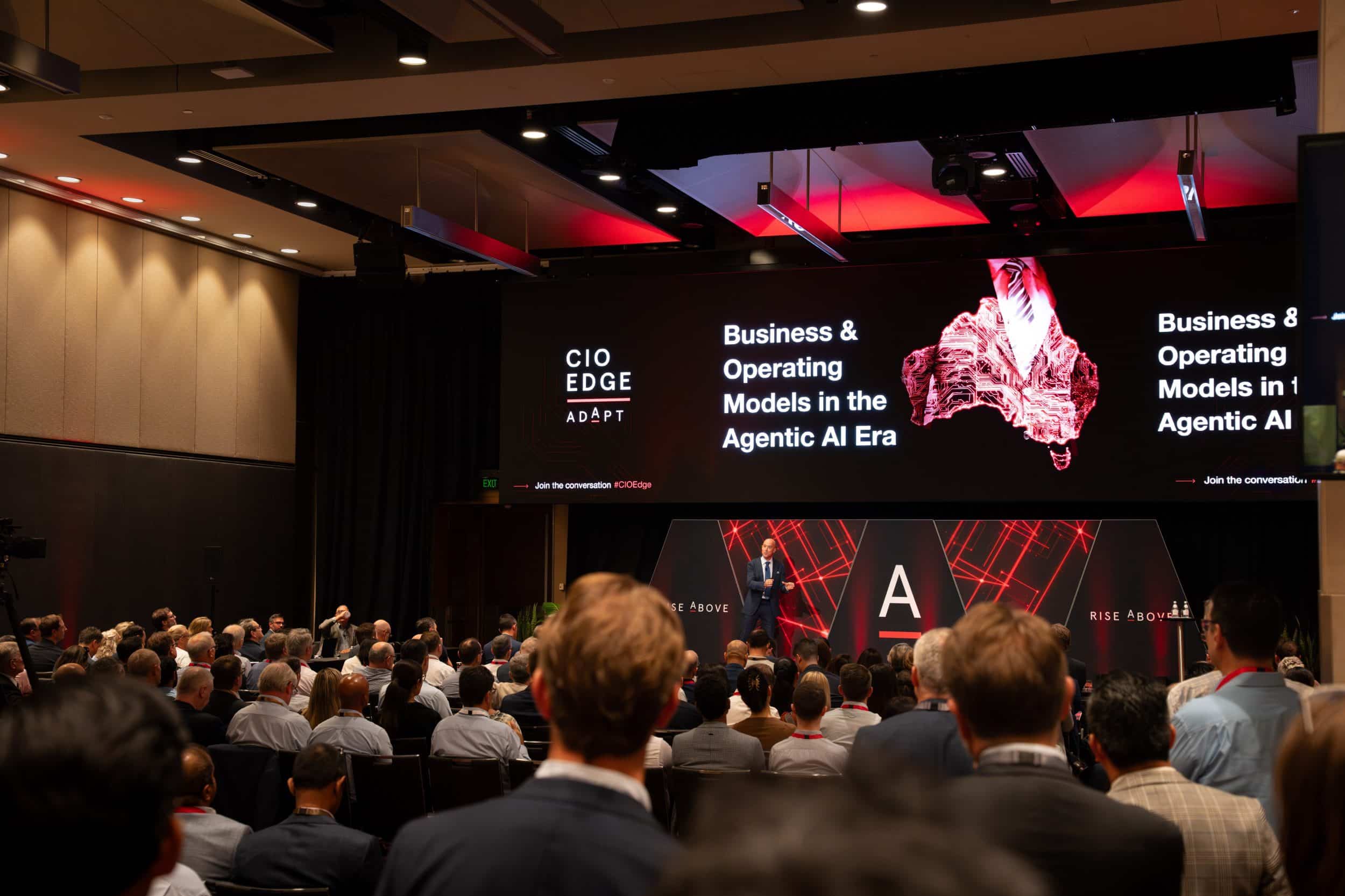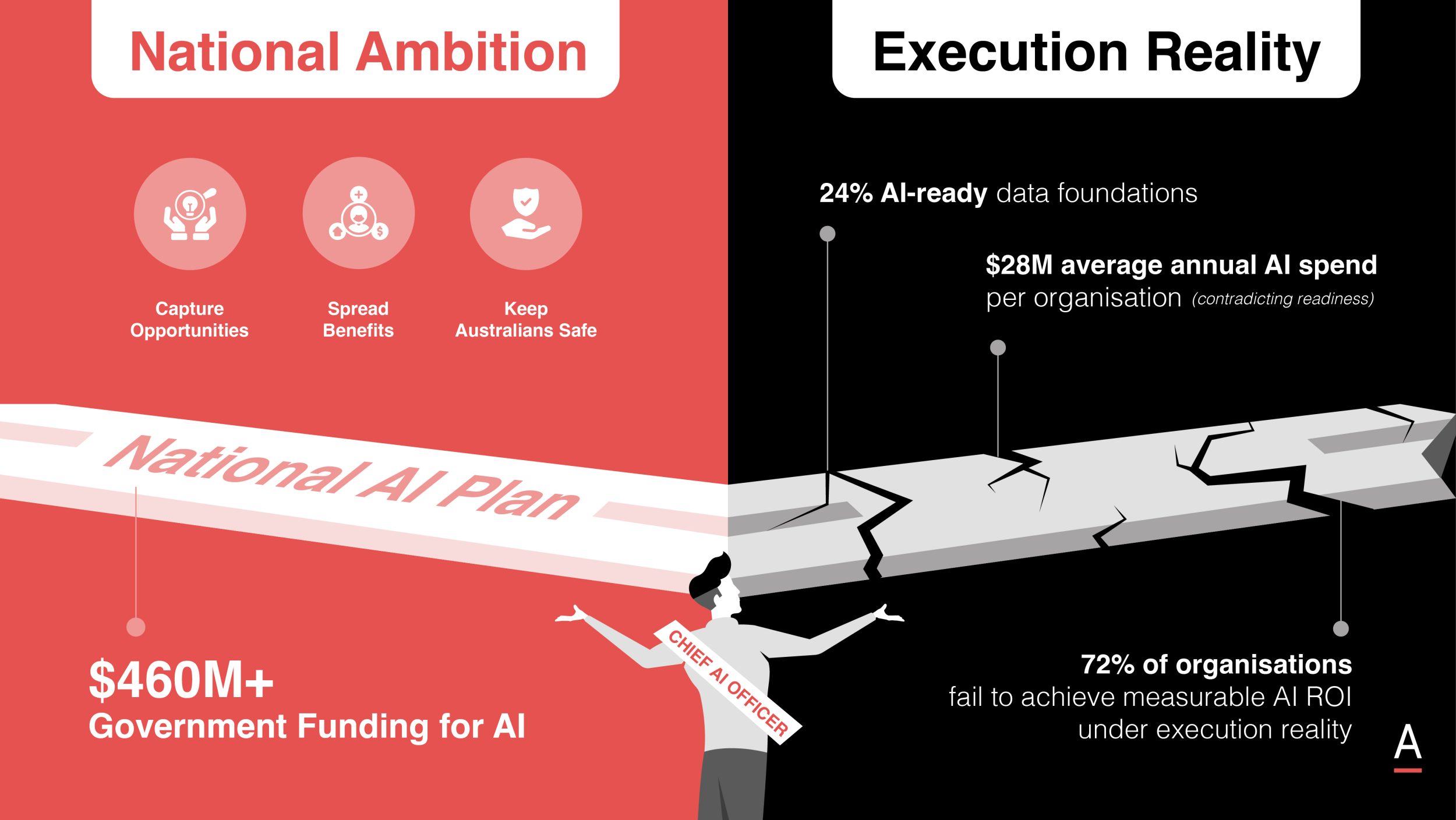How are organisations getting AI wrong?
At Data & AI Edge, Michael Kollo, CEO of Evolved AI, unpacks the fundamental difference between data and AI, emphasising that AI isn't just an extension of data infrastructure.At Data & AI Edge, Dr. Michael Kollo, CEO of Evolved AI, unpacks the fundamental difference between data and AI, emphasising that AI isn’t just an extension of data infrastructure.
It’s a whole new way of making decisions.
He challenges the common misconception that AI is merely a utility, like data, highlighting its potential to transform how organisations think and decide.
Through stories and examples, Dr. Kollo underscores the importance of integrating AI into a business’s existing cognitive processes, rather than treating it as a separate tech solution.
He addresses common fears and misconceptions about AI, especially the worry that it will replace human workers.
7 AI pitfalls organisations must avoid:
Dr. Kollo argues that AI should be seen as a core business function, not just a support function, emphasising its ability to enhance human skills and drive value.
Additionally, Dr. Kollo stresses the importance of cultural readiness and adoption within organisations. He highlights the need to address employees’ anxieties and uncertainties about how AI will impact their roles and future prospects.
It’s vital to understand AI as a transformative force within organisations.
Businesses should seamlessly integrate AI into their decision-making processes and organisational culture.
He emphasises the need for collaboration between business and technology teams to use AI effectively, positioning it not as a standalone solution but as a strategic enabler of competitive advantage and business growth.
Key takeaways:
- AI is a paradigm shift in decision-making, distinct from traditional data infrastructure, challenging the idea that it’s just an extension of data.
- AI should be viewed as a core business function, not just a utility or support function. It can enhance human capabilities and create value within organisations.
- Cultural readiness and alignment with existing cognitive frameworks are crucial for successful AI adoption, requiring collaboration between business and technology teams to integrate AI effectively and position it as a strategic enabler of competitive advantage.





























